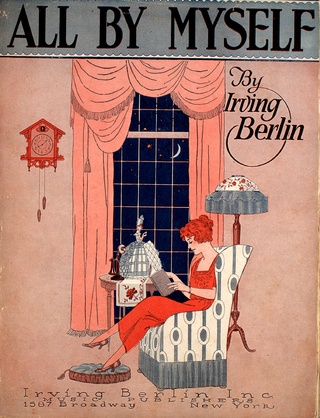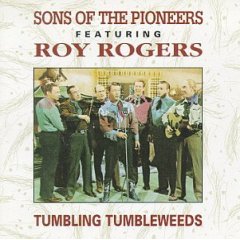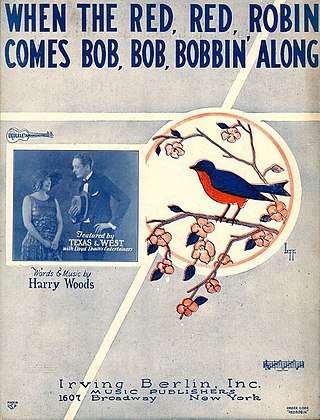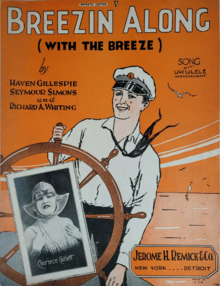"Please Don't Talk About Me When I'm Gone" is a song published in 1930. It was written by Sam H. Stept with lyrics by Sidney Clare. The original publication also credited singer Bee Palmer as co-composer.

"My Buddy" is a popular song with music written by Walter Donaldson, and lyrics by Gus Kahn. The song was published in 1922 and early popular versions were by Henry Burr (1922), Ernest Hare (1923) and Ben Bernie.
"Don't Take Your Love from Me" is a popular song written by Henry Nemo and published in 1941. Mildred Bailey first recorded this song in 1940 before publication. It was introduced that year by singer Joan Brooks.
"It's Easy to Remember " is a popular song written by Richard Rodgers with lyrics by Lorenz Hart.
"September in the Rain" is a popular song about nostalgia by Harry Warren and Al Dubin, published in 1937. The song was introduced by James Melton in the film Melody for Two. It has become a standard, having been recorded by many artists since.
"I've Got a Crush on You" is a song composed by George Gershwin, with lyrics by Ira Gershwin. It is unique among Gershwin compositions in that it was used for two different Broadway productions: Treasure Girl (1928), when it was introduced by Clifton Webb and Mary Hay, and Strike Up the Band (1930), when it was sung by Doris Carson and Gordon Smith. It was later included in the tribute musical Nice Work If You Can Get It (2012), in which it was sung by Jennifer Laura Thompson. When covered by Frank Sinatra he was a part of Columbia Records.
"Fine and Dandy" is a popular song from the 1930 Broadway musical of the same name.

"Nobody's Sweetheart", also known as "Nobody's Sweetheart Now" and "You're Nobody's Sweetheart Now", is a popular song, written in 1924, with music by Billy Meyers and Elmer Schoebel, and lyrics by Gus Kahn and Ernie Erdman. The song is a jazz and pop standard.
"I Guess I'll Have to Change My Plan" is a popular song published in 1929, with music by Arthur Schwartz and lyrics by Howard Dietz.
"June in January" is a popular song with music by Ralph Rainger and lyrics by Leo Robin, published in 1934.
"Along the Navajo Trail" is a country/pop song, written by Dick Charles, Larry Markes and Eddie DeLange in 1945, and first recorded by Dinah Shore in May 1945.

"All by Myself" is a popular song written by Irving Berlin, published in 1921.

"Tumbling Tumbleweeds" is a Western music song composed by Bob Nolan, a founding member of the Sons of the Pioneers. Nolan wrote the song in the early 1930s while he was working as a caddy and living in Los Angeles. It was first recorded by the Sons of the Pioneers in 1934, and it became one of the most famous songs associated with the group. Originally titled "Tumbling Leaves", the song was reworked into the title "Tumbling Tumbleweeds" and into more widespread fame with the 1935 film of the same name starring Gene Autry. Members of the Western Writers of America chose it as one of the Top 100 Western songs of all time.
"Paradise" is a 1931 song with music by Nacio Herb Brown and lyrics by Gordon Clifford. It was first sung by Pola Negri in RKO Pictures' 1932 film A Woman Commands, and has since been heard in many other films, including a memorable performance by Gloria Grahame, in the 1949 Nicholas Ray film A Woman's Secret.

"Swingin' Down the Lane" is a 1923 song composed by Isham Jones with lyrics by Gus Kahn. Jones' instrumental version was second to "March of the Wooden Soldiers" in the list of top songs for 1923. Other popular versions in 1923 were by Ben Bernie, and The Columbians.

"When the Red, Red Robin " is a popular song written, both words and music, by Harry Woods in 1926. The song became the signature song for singer and actress Lillian Roth, who performed it often during the height of her musical career from the late 1920s to the late 1930s.
"Then I'll Be Happy" is a jazz standard composed by Cliff Friend, with lyrics by Lew Brown and Sidney Clare. It was first published in 1925. A popular recording in 1926 was by Whispering Jack Smith.
"Sweet Sue, Just You" is an American popular song of 1928, composed by Victor Young with lyrics by Will J. Harris. Popular versions in 1928 were by Earl Burtnett and by Ben Pollack.
"The Best Things in Life Are Free" is a popular song written by the songwriting team of Buddy DeSylva and Lew Brown (lyrics) and Ray Henderson (music) for the 1927 musical Good News. It enjoyed a revival during the period from 1947 to 1950, when it was covered by many artists.
"Sunday" is a 1926 song written by Chester Conn, with lyrics by Jule Styne, Bennie Krueger, and Ned Miller, which has become a jazz standard recorded by many artists. The tune has been fitted out to various lyrics, but best known in the original version of British-American songwriter Jule Styne: "I'm blue every Monday, thinking over Sunday, that one day that I'm with you"






